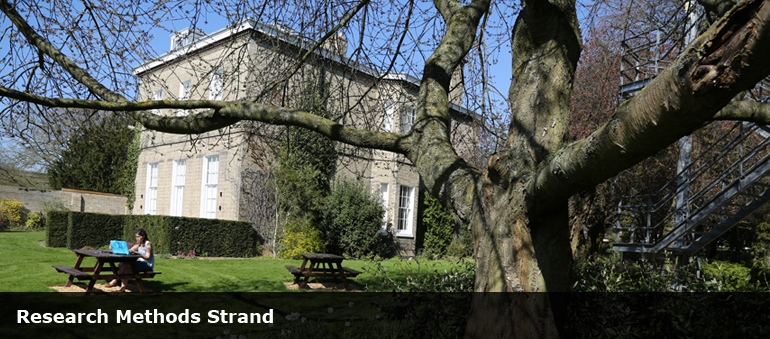
Masters students on the majority of courses are required to attend a generic research methods strand, taught across routes. The Transforming Practice route has their own alternative arrangements.
Research Methods sessions are essential for a research-based Masters degree and constitute about one-third of the whole programme. Through this strand students will develop their understanding of different research strategies, foster skills in appraising and synthesising published research studies and acquire the understanding and skills necessary for designing, conducting, analysing, interpreting and reporting a small-scale research study for thesis presentation.
The research strand covers a broad range of social science research methods and is essential for Masters level understanding and critical engagement with the research literature in many specialist areas and in education more generally. It offers opportunities and encouragement to apply the knowledge gained to your thematic area, and vice versa.
What our students have to say...
The discussions of articles were helpful because they provided me with insights and perspectives on the articles that I might not have come up with myself. I liked the detailed practical exercises – they were useful in considering the type of research I would like to do.
The lecturers provided practical advice on certain methods which was really helpful in my own research.
The research support session where we presented our projects was most relevant and helpful. I certainly gained additional insights into my project which was great!
It's really helpful to think about different ways of researching by discussing issues with students from different thematic routes.
The opportunity to share ideas with teachers from across the world has been incredible. As well, being exposed to research ideas from across the spectrum is very valuable.
I think the core RMS sessions have been useful as a whole because whilst I will not be using many of the methods in the near future, having a broad overview of the methods available means I am confident that I will make good/appropriate choices for both my thesis and hopefully in future research.
Before this course I used to skip the methodology part of a paper but now I can read it and understand it very well and I also feel confident enough to critique research methodology.
To be completely honest, I was not quite sure what to expect at the beginning of the course. I feel it is now more relevant to my project - or I am more aware of the importance of research methods.
Although a large proportion of the content we have studied in RMS will not contribute towards my thesis, nevertheless I have valued the opportunity to find out more about the ideas which underpin educational research and the skills needed. While I will not be continuing with educational research myself once the course has concluded, I think it is of great importance to continuing advancements in education, and I would happily welcome researchers into my own classroom in the future.
